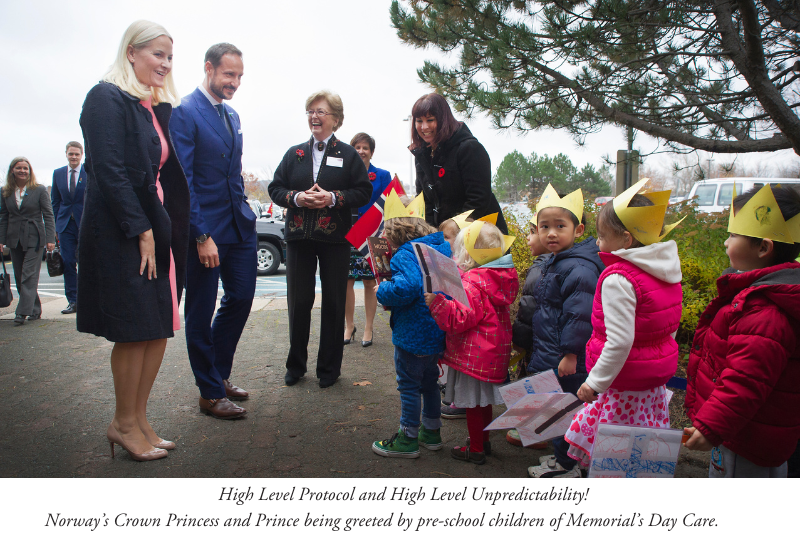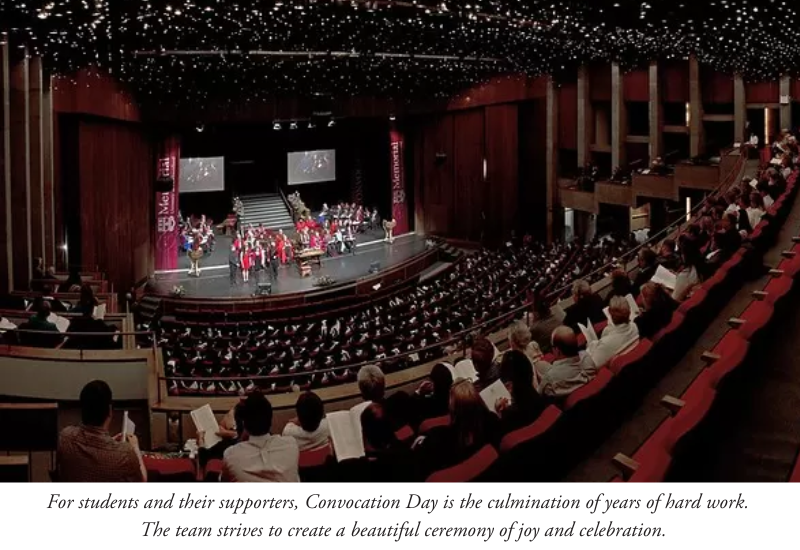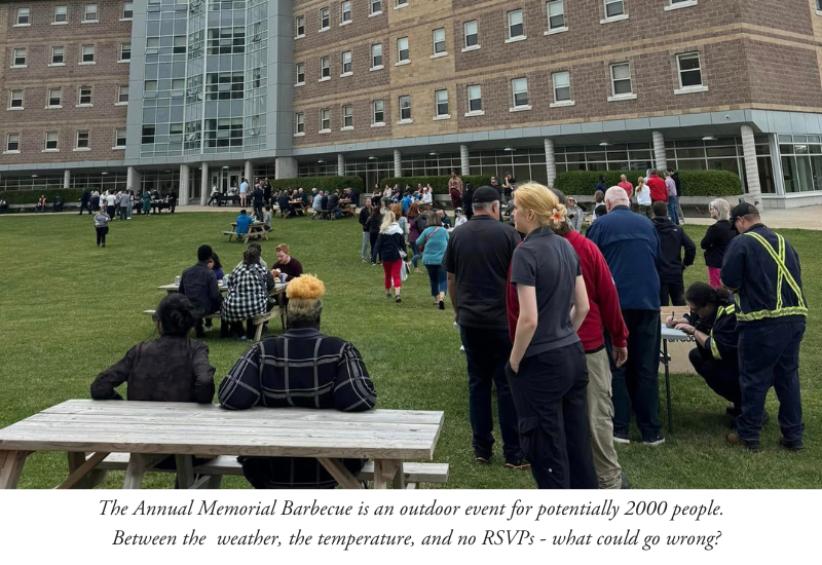RIGHT ON CUE - hit the right notes at high level events
-952x238.png)
As everyone who has ever planned one knows, event management is a discipline onto itself: so many moving parts!
Then when ranking officials, representatives or dignitaries from Governments, the Indigenous Community, International Organizations, royalty and others are involved, it levels up: what started as an impressive intention can quickly become a protocol situation.
Paula Eddy-Shea knows high level events. She is the events liaison for Memorial’s Conference and Event Services team. She’s played an active role in Memorial's Convocation or Convocation Receptions for more than a decade. She has organized events with Royalty, dignitaries, and political leaders including HRH Princess Anne, the Crown Princess and Prince of Norway, the head of the European Union, as well as international, national and provincial leaders, and corporate leaders. She’s managed the coming together of people with diverse and sometimes opposing views. She has also done the behind-the-scenes work for thousands of events in auditoriums, in lecture halls, and in outdoor spaces that makes everything seem effortless.

She says, “The level of formality in events has relaxed over the past decade and there are a couple of reasons for that. Online meeting is a big one, but also corporate and NGO collaboration, as well as internationalization and the integration of cultures. Each of these factors introduce new considerations to make events successful.”
When Paula starts work on a new event, here are the four primary considerations she ensures the event host keeps top of mind.
- Who is the Host? Sometimes this is easy and obvious but not always. Collaborative events between, for instance, different countries and different levels of government bring together different organizational hierarchies and there’s an order to follow. The starting point is ‘who owns the event’ - the host is always precedent. Whether there’s an emcee influences the order to a degree, but the emcee serves to set up and possibly facilitate changes and doesn’t factor in the hierarchy. There is a publicly available protocol list for the federal government, but as a rule of thumb, elected or appointed positions move higher up the list based on the scale of their position. Good to remember that the speaking order can start with the highest or end with the highest, but the sequence in between should follow the proper order.
- What are the intent and objectives of the event? Events happen for a multitude of reasons. Recognition Ceremonies, Annual General Meetings, Partnership Announcements, Shareholder Meetings – the list goes on. Generally, though, hosts bring people together to share something they have done, something they want to do or are going to do, or to mark an important event or occasion. The question is what type of feeling do you want guests to walk away with – that objective sets the tone. Is it serious? Solemn? Celebratory? Fun and festive? Energized? All the components of your event can support your objective from the time and venue, to how guests are invited, to how the room is set up to whether there is food, entertainment and more.

- Who is coming? Knowing the demographic of guests is key to creating an inclusive, accessible event. Our population includes a growing range of cultural norms so it’s paramount to know and accommodate the cultural practices of guests. Keep in mind important holidays and practices when planning – for instance, when is Ramadan? When is Easter? Are there events or occasions that should be acknowledged, like Black History Month? Depending on the length and content of your event, you may consider offering a quiet room for guests who may need leave for praying, or if perhaps the content might be triggering. Another important point is whether to build in a pause before eating. When it comes to food, ensuring choices that are culturally appropriate and meet the dietary needs of guests is essential. The RSVP is your ally here! Always ask for dietary and accessibility needs. Common dietary choices include vegan, vegetarian, Halal, gluten-free, dairy-free but there could be others. The accessibility choices can range from physical, to auditory, to visual, to sensory, to offering straws. (Using a straw makes drinking much easier for people wearing a niqab.)

- For the Record – Events happen fast in the moment. When dignitaries are involved it’s a good idea to plan a shot list – a list of photos - to capture the images you want. It usually saves time and gives more control when you do this before or after the event. When people with celebrity status are at events, other guests can be tempted to pop and post a few selfies. If this is unwanted, it’s important to make that clear to other guests. This can be achieved through a politely worded comment on the invite or RSVP, and reiterated by the emcee. If it’s possible, it’s a good idea to set up a photo op to give guests the chance to capture their moment.
And on the topic of RSVPs, Paula says, “As a favour to every event organizer – if there is an RSVP – do it!”
~
Meet at Memorial - Insider Tips is a series of blogs from Memorial University's Conference and Event Services team. Follow our socials, or email ktodd@mun.ca with the Subject 'subscribe' to receive 'Event Matters... because Events Matter' the CES e-newsletter and stay in the know when new blogs are published!
Contact meet@mun.ca for more information about space and services offered by Conference and Event Services.